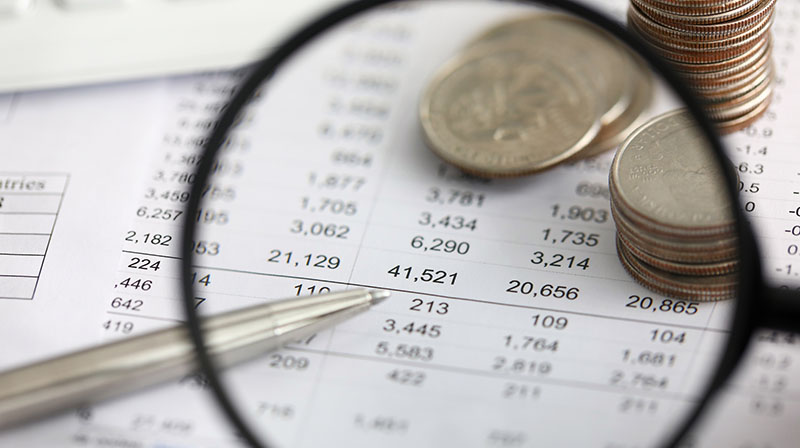
This content is for information and inspiration purposes only. It should not be taken as financial or investment advice. To receive personalised, regulated financial advice please consult us here at Elmfield Financial Planning in Padiham, Burnley, Lancashire.
The individual savings account (ISA) is one of the UK’s most powerful “vehicles” for someone to save and invest. Yet ISAs are also widely misunderstood and many people make needless mistakes with them, leading to missed opportunities for wealth growth. In this article, our team at Elmfield Financial Planning wanted to highlight 5 common mistakes we see with ISAs and how to avoid them. We hope this is useful and please get in touch if you’d like to discuss your own financial plan with us over a free, no-commitment consultation.
#1 Too many accounts
Some people seem to be under the impression that you can only own one stocks & shares ISA at a time. The reality is that you can own multiple such accounts, but can only open one – and pay only into one stocks & shares ISA – each tax year. This means it is possible to own many stocks & shares ISAs. However, this does not necessarily make it a good idea to do so. Having multiple accounts can be difficult to manage and this can lead to costly mistakes. The primary exception to this is if certain accounts offer access to investments that the others do not, such as exclusive investment funds.
#2 Not using a pension effectively
With your ISA, the money you put into it typically comes from your after-tax earnings (e.g. your salary, which may have been taxed at 20%, 40% or 45% depending on your marginal rate of income tax). If you want to build long-term wealth for retirement, however, it is often better to commit this money to a pension instead. This is because your contributions receive tax relief equivalent to your highest rate of income tax. So, for a Higher Rate taxpayer, he/she gets a 40% “boost” to their contributions. This benefit is not available to ISAs.
However, there can be times when an ISA is a better option than a pension. If you want to retire before age 55, then your ISAs do not have any age restrictions (except the Lifetime ISA, which becomes available after age 60). Moreover, if you are nearing your Lifetime Allowance for your pensions (the tax-free “cap” on how much you can save inside them), then it may be better to move your contributions into other tax-efficient vehicles like an ISA.
#3 Not using other tax allowances strategically
You can put up to £20,000 into your ISAs each tax year and earn tax-free interest, capital gains and dividends. Yet there are also tax-free allowances available outside of an ISA which often make sense to use first. In 2022-23, you can earn up to £12,300 in capital gains and up to £2,000 in dividends without tax. By arranging your portfolio efficiently, therefore, it may be possible to increase your after-tax returns. Suppose you are a Higher Rate taxpayer, meaning that you would pay 33.75% on chargeable dividends and 20% on non-residential property capital gains. If you want to build an “income portfolio” using dividends, therefore, it may be more tax-efficient to concentrate your ISA allowance on the dividend-paying shares and build other investments outside of it.
#4 Not using family allowances
If you are in a relationship, then both you and your partner are each entitled to an ISA allowance of £20,000 per year. If either person has maximised their allowance for the year, then it could save on your household tax bill to transfer assets to the other person who has not yet used their full ISA allowance (spouses can usually do this without capital gains consequences). If you have children, moreover, then there is also the option to open a Junior ISA for each child and contribute to it (up to £9,000 per tax year). Bear in mind that your children can access the capital from age 18, at which point you will no longer have control over the account. If you want to specify how, when and under which circumstances your child can start accessing money that you set aside for them, consider speaking to a financial planner about setting up a trust.
#5 Not planning for inheritance tax
When you die, a pension pot can be inherited by your beneficiaries without IHT as the assets are not considered part of your estate. However, most ISA savings will be subject to IHT once your IHT thresholds and allowances have been exceeded. There are ways to address this, however. One option is to focus on spending your ISA savings and investments at the beginning of retirement (rather than those in your pension). Another idea is to start moving investments in your ISA into AIM shares (alternative investment market), where the companies often qualify for Business Property Relief. If you hold these shares for at least two years then they are typically exempt from IHT. However, bear in mind that these shares can be riskier investments than other shares and asset classes available through your ISAs. Speak to a financial planner to ensure your portfolio continues to reflect your investment goals, time horizon and risk tolerance.
Invitation
If you are interested in starting a conversation about your own financial plan or investments, then we’d love to hear from you. Please contact us to arrange a free, no-commitment consultation with a member of our team here at Elmfield Financial Planning in Padiham, Burnley, Lancashire.
Reach us via:
T: 01282 772938

